From June 8-11th, roughly 1,000 high school students and 4,000 members of the public gathered to celebrate and learn about the oceans during a multi-day outreach event for World Ocean Day in Cape Town, South Africa. Visitors were exposed to life as a sea-going marine scientist through a tour of the 440 foot South African Agulhas II research vessel and were given hands-on demonstrations of the use of state-of-the-art ocean observing platforms, including Argo floats, satellite tracked drifting buoys, and buoyancy gliders (see picture below). The importance of ocean health and ocean observing capabilities was further emphasized by the commemoration of the event by South African Minister of Forestry, Fisheries and the Environment, Ms Barbara Creecy.
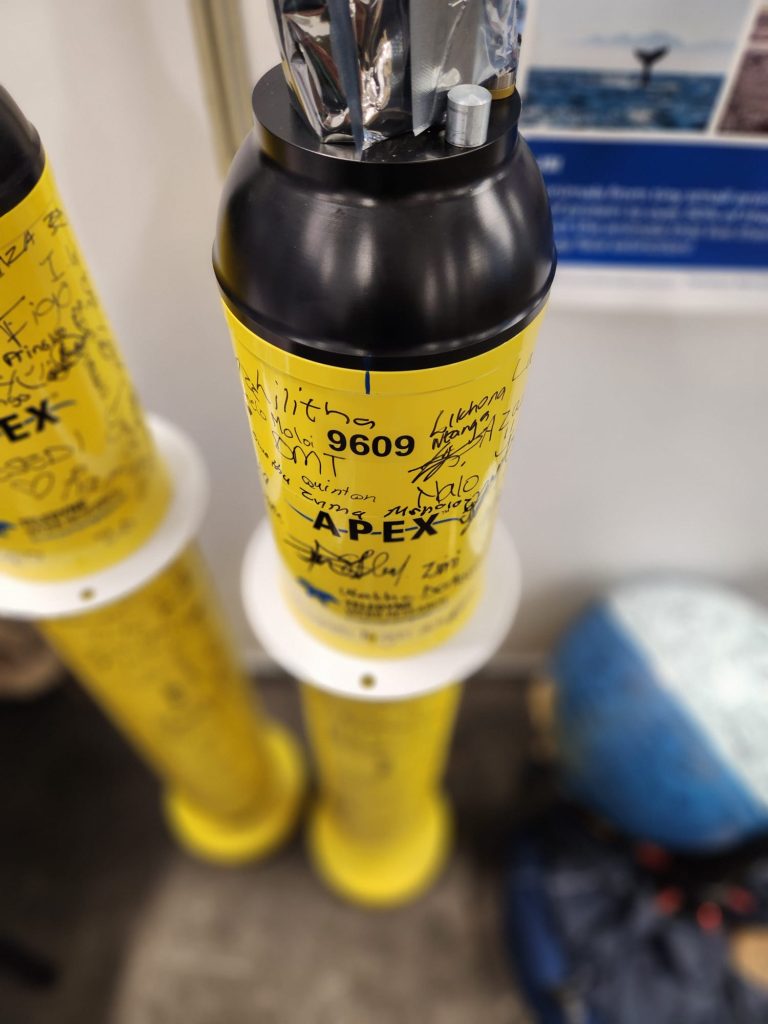
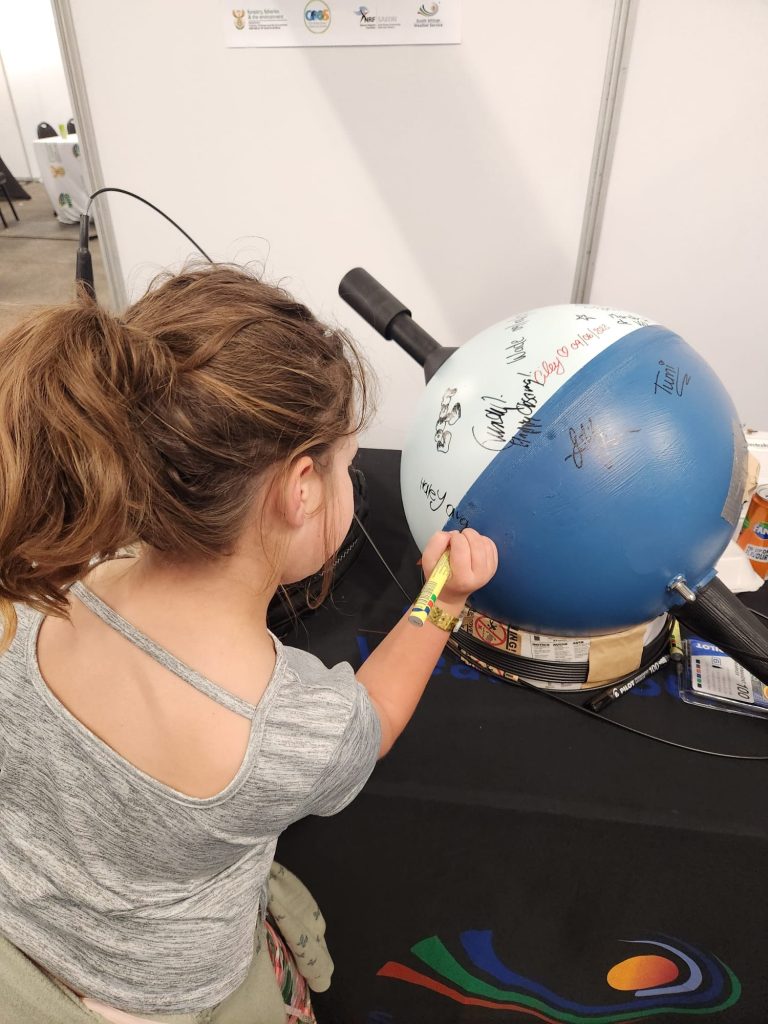
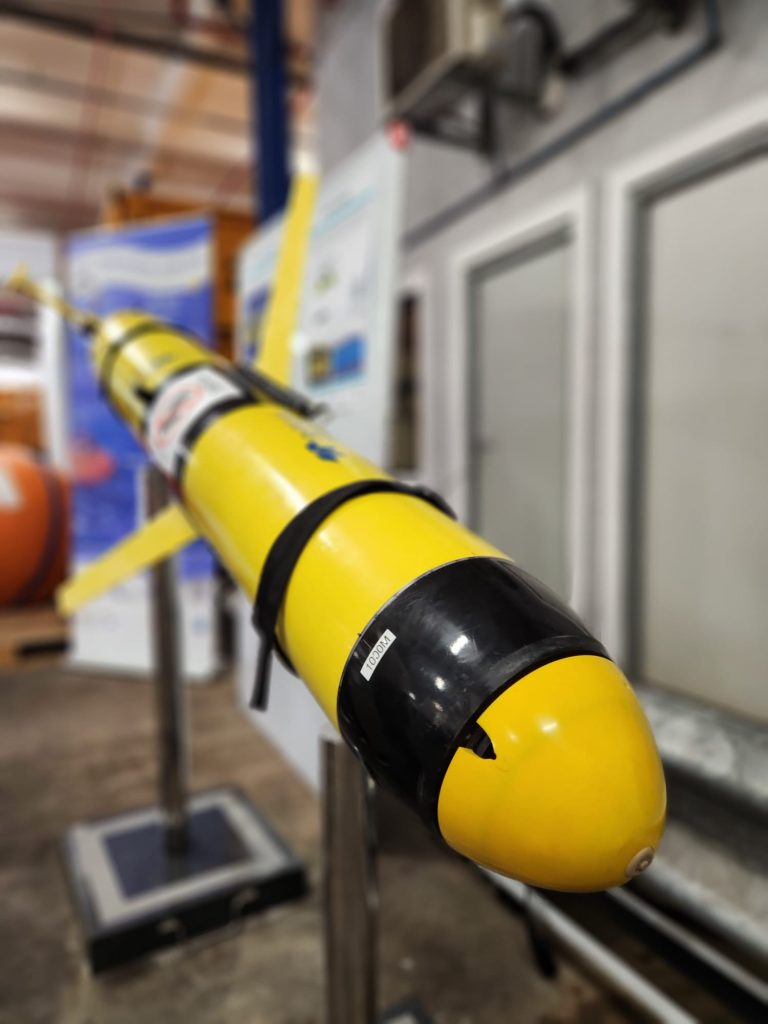
Snapshot of select ocean observing platforms displayed during the multi-day outreach event including an Argo float, drifting buoy, and glider (photo credit: Ann-Christine Zinkann).
This celebration of World Ocean Day was co-hosted by members of the Observation Coordination Group of the Global Ocean Observing System (GOOS), including Ann-Christine Zinkann from NOAA’s Global Ocean Monitoring and Observing Program (GOMO), and colleagues at the Department of Forestry, Fisheries, and the Environment Oceans and Coasts Physics team, the South African Environmental Observations Network (SAEON), the Antarctic Legacy of South Africa (ALSA), and Sea Technology Services (STS).
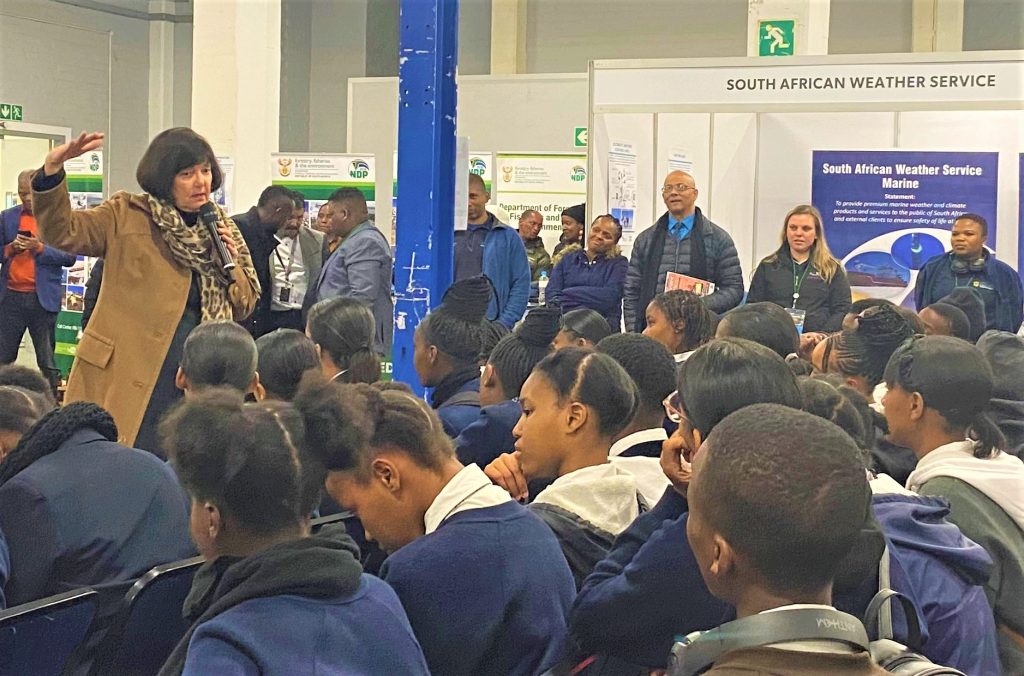
The Observation Coordination Group is chaired by NOAA GOMO Director David Legler and aims to advance the operation, maintenance, coordination and integration of 12 global ocean observing networks, including Argo, Ocean Reference Stations (OceanSITES), and GO-SHIP, among others (learn more here). Prior to the outreach event, the 14th session of the Observation Coordination Group (OCG) assembled in Cape Town and hosted two additional workshops that were focused on low-cost technologies and boundary currents systems.
Through their leadership positions, Legler and Zinkann collaborate with international partners, organizations, and networks to design, build, and grow the ocean observing system. Ocean observations are vital to sustaining ocean health and economies, improving weather forecasting, and understanding the effects of climate change. These areas of study influence the entire planet, not just single nations or coasts, and thus require leadership and coordination through large international bodies, like GOOS.
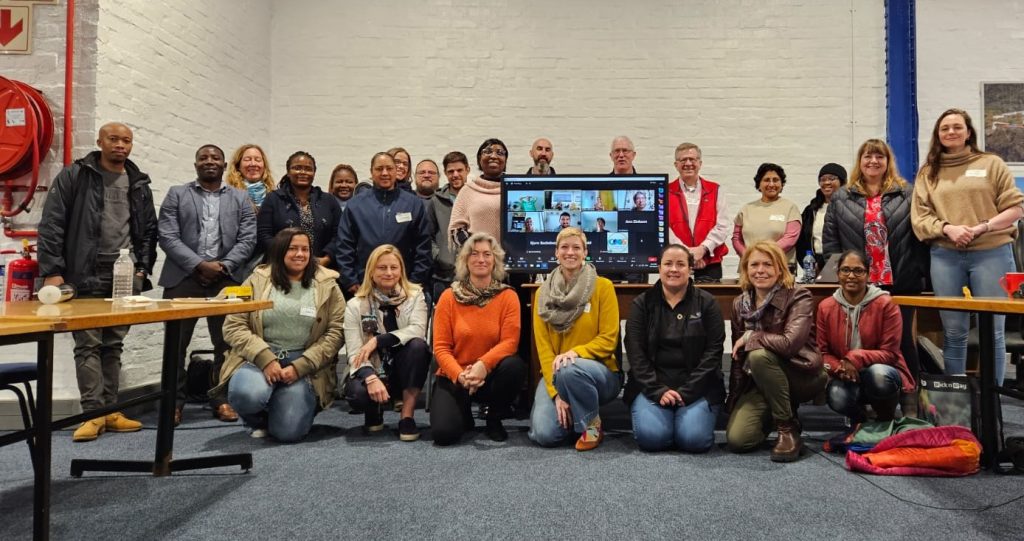
GOMO advances NOAA’s mission by providing leadership in multiple international fora, including GOOS, the World Meteorological Organization (WMO), the United Nations Decade of Ocean Science for Sustainable Development (Ocean Decade), the UNESCO Intergovernmental Oceanographic Commission (IOC), and the Sustaining Arctic Observing Network (SAON), among others. This leadership involves a wide range of activities including overseeing the creation and implementation of new observing technologies, assessing the health and coverage of the global observing system, developing industry, governmental, non-governmental, and academic partnerships, and providing strategic guidance and assessments for further international and national investments. By participating in these fora, gaps, overlaps, and opportunities are defined and addressed, and the overall utility of international ocean science improved.
Our global ocean not only makes all life on Earth possible, but brings together distant communities in shared recreation, cultural practices, fishing and harvest, marine jobs and economies, and research. First established in 1992, World Ocean Day provides the opportunity for the world to celebrate, promote, and protect our planet. This year, GOMO is thankful for the opportunity to honor ocean health and ocean observations with international colleagues and communities, in Cape Town and beyond.
Learn more about international ocean observing in the video, The Evolution of the Global Ocean Observing System.